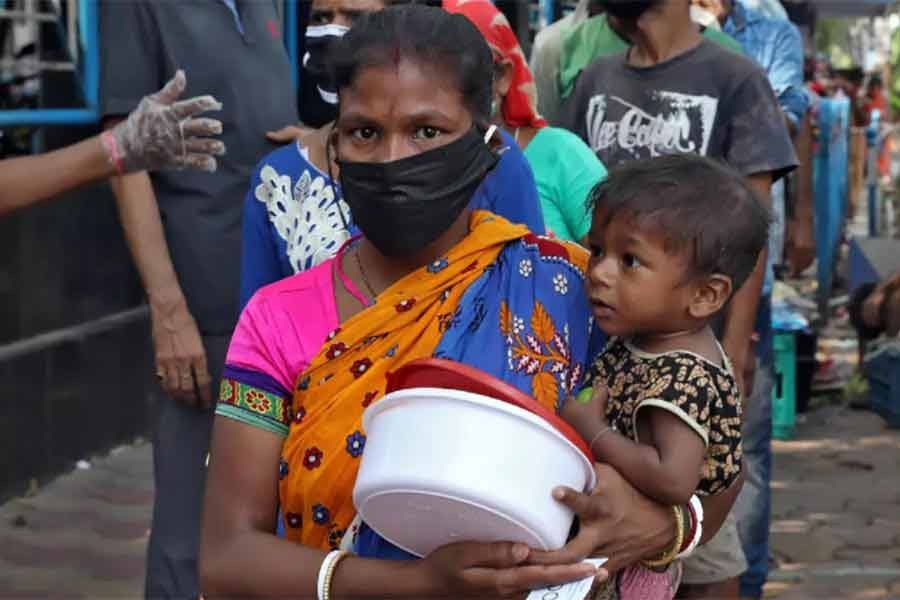A question stirs many minds if Bangladesh could face a twin crisis of food and energy within a few months. Such apprehension is now quite pertinent for reasons not so few, especially when energy crisis is already there and premonition is rife about food crisis early next year.
The country's top policymakers have hinted that the crises are unavoidable--given some domestic and global developments. While speaking at several events in the last few weeks, Prime Minister Sheikh Hasina stressed coordinated work in growing more food by bringing every inch of land under cultivation. She also argues that all-out efforts are needed to protect Bangladesh from a looming global famine or food crisis against the backdrop of the Russia-Ukraine war. Her repeated warning on possible famine in the near future is well substantiated. Since the middle of this year, several international agencies and organisations have expressed their fear about acute food crisis in the world all too soon, in 2023 to be precise. The bellwether comes from the United Nations Food and Agriculture Organisation (FAO), the World Food Programme (WFP), the World Bank, and even the World Trade Organization (WTO).
Though the Russia-Ukraine war seems to be the main reason behind the looming food crisis, the reality is somewhat different. War and conflicts in different regions of the world for a decade already have created acute food crisis in the countries involved. The conflict in Yemen, which has been going on for six years now, is an example. The pandemic originating from Covid-19 is another driving force of the food shortage in some countries. Negative impact of climate change also hangs over for long.
Besides these manmade disasters and natural phenomenon, flawed food policies coupled with poor governance and internal mismanagement have pushed some countries into food crisis. Sri Lanka is a case in point. The country's decision to ban chemical fertilisers in May 2020 without sufficient preparations for organic transition led to a big decline in agricultural production. Though the ban was reversed in November 2021, damage had been done by then. The country faced a food deficit as food inflation jumped to 90 per cent in July this year. As the country's foreign- exchange reserves dried up, it also cannot import necessary food, leading to an acute food crisis.
Though the food situation of Bangladesh is still not grave, there is no scope of being complacent. The country is still significantly dependent on imports of food from the international market. That's why, as witnessed in the past, any small disruption to import makes some volatility in the domestic food market. The country's policymakers have, however, long claimed that Bangladesh has achieved self-sufficiency in food. For instance, in the FY23 budget speech, finance minister AHM Mustafa Kamal said: "The commitment made in the 'Vision 2021' to increase food production, alleviate food shortages and make the country self-sufficient in food production has already been achieved, thanks to various effective measures taken by the government."
According to the United Nations Food and Agriculture Organization, ""The concept of food self-sufficiency is generally taken to mean the extent to which a country can satisfy its food needs from its own domestic production." In other words, a country achieves self-sufficiency when it does not need to import food from the international market as its domestic output is sufficient to meet the local demand.
Despite a persistent increase in food output in the last decade, the country could never skip food import. Most of the years in the last decade, imports of foodgrains (rice and wheat) increased over the previous years. Imports of other food items like lentils, sugar, edible oils, milk and cream and spices have always been there. The simple arithmetic is that domestic output is insufficient to meet the growing demand for food. So there is no alternative to importing food from the other countries.
As global food market is turning volatile and food-exporting countries are reducing their exports to ensure domestic food security, it will be difficult for many developing countries, including Bangladesh, to import necessary food in the near future. Lower production coupled with restricted trade is likely to force these countries to suffer food deficit for a longer period.
Again, domestic food-grain output in Bangladesh has suffered in the current year and projection is there that it may face further setback due to floods in northern part. Food ministry statistics show that foodgrain output stood at 38.70 million tonnes in FY21 which was 2.8-percent higher than that of the previous fiscal year but 2.30-percent lower than the annual target of 39.55 million tonnes. In Bangladesh, foodgrain generally means rice as wheat is below 1.50 per cent of the total foodgrain output. The final figure of FY22 is yet to be released. According to a US Department of Agriculture (USDA) report, however, rice output was 36.85 million tonnes in FY22 against the annual target of 40.70 million tonnes. The USDA also projected that the production of rice would come down to 35.65 million tonnes in FY23.
Thus there is risk of food- supply crunch from both internal and external sources in the coming days.
A latest commodity outlook released by the World Bank on Thursday said: "The shrinking value of the currencies of most developing economies is driving up food and fuel prices in ways that could deepen the food and energy crises that many of them already face." The Bangladeshi taka has lost its value against the US dollar for the last couple of months and there is no sign that the course will reverse in the near future. With higher inflation and depleting foreign- exchange reserves, further depreciation of the local currency, in all probability, is a certainty. This may aggravate the overall economic situation and make food crisis inevitable.


